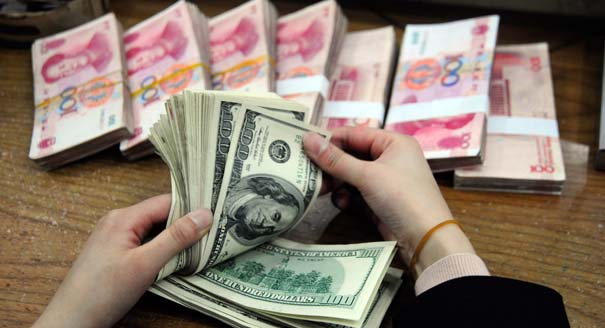Michael Pettis
{
"authors": [
"Michael Pettis"
],
"type": "legacyinthemedia",
"centerAffiliationAll": "dc",
"centers": [
"Carnegie Endowment for International Peace"
],
"collections": [],
"englishNewsletterAll": "asia",
"nonEnglishNewsletterAll": "",
"primaryCenter": "Carnegie Endowment for International Peace",
"programAffiliation": "AP",
"programs": [
"Asia"
],
"projects": [],
"regions": [
"North America",
"United States",
"East Asia",
"China"
],
"topics": [
"Economy",
"Trade",
"Foreign Policy"
]
}
Source: Getty
China’s War on Low U.S. Interest Rates—When Imbalances Get Out of Hand
Despite recent Chinese criticism of low U.S. interest rates, changing these rates in either direction would have adverse effects on China’s economy, underscoring the deep imbalances in the global financial system.
Source: The New York Times

PETTIS: The criticism by China’s top bank regulator, Liu Mingkang, of too-low U.S. interest rates indicates how terribly confused the debate has become. Low U.S. interest rates and the expected depreciation of the American dollar encourage investors to borrow dollars and invest in Asia, where it may be encouraging additional investment in China, a country that is already drowning in too much investment.
But low interest rates in the U.S. will help reverse the sharp fall in U.S. consumption that has been catastrophic for China’s export sector.
China’s overinvestment problem was created as part of the imbalance that had Chinese overproduction feeding American overconsumption for many years. China’s huge stimulus is likely to increase production even further at the expense of domestic consumption, putting even more pressure on China to sell its excess capacity to American consumers.
So which hurts China, lower or higher U.S. interest rates? Unfortunately, both. That is the problem with imbalances getting out of hand. They are never easy to fix.
About the Author

Nonresident Senior Fellow, Carnegie China
Michael Pettis is a nonresident senior fellow at the Carnegie Endowment for International Peace. An expert on China’s economy, Pettis is professor of finance at Peking University’s Guanghua School of Management, where he specializes in Chinese financial markets.
- A China Financial Markets PostCommentary
- What’s New about Involution?Commentary
Michael Pettis
Recent Work
Carnegie does not take institutional positions on public policy issues; the views represented herein are those of the author(s) and do not necessarily reflect the views of Carnegie, its staff, or its trustees.
More Work from Carnegie Endowment for International Peace
- What We Know About Drone Use in the Iran WarCommentary
Two experts discuss how drone technology is shaping yet another conflict and what the United States can learn from Ukraine.
Steve Feldstein, Dara Massicot
- Beijing Doesn’t Think Like Washington—and the Iran Conflict Shows WhyCommentary
Arguing that Chinese policy is hung on alliances—with imputations of obligation—misses the point.
Evan A. Feigenbaum
- A China Financial Markets PostCommentary
Description of the post.
Michael Pettis
- Axis of Resistance or Suicide?Commentary
As Iran defends its interests in the region and its regime’s survival, it may push Hezbollah into the abyss.
Michael Young
- How Far Can Russian Arms Help Iran?Commentary
Arms supplies from Russia to Iran will not only continue, but could grow significantly if Russia gets the opportunity.
Nikita Smagin









